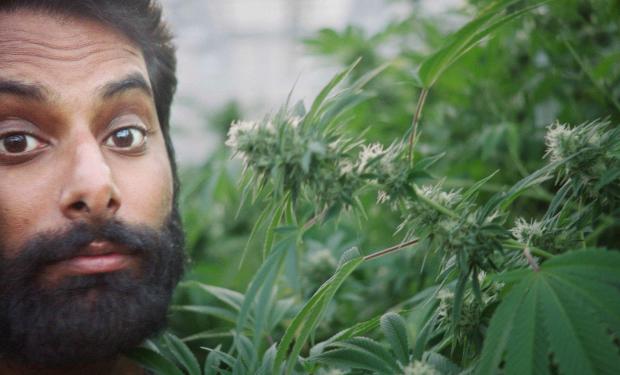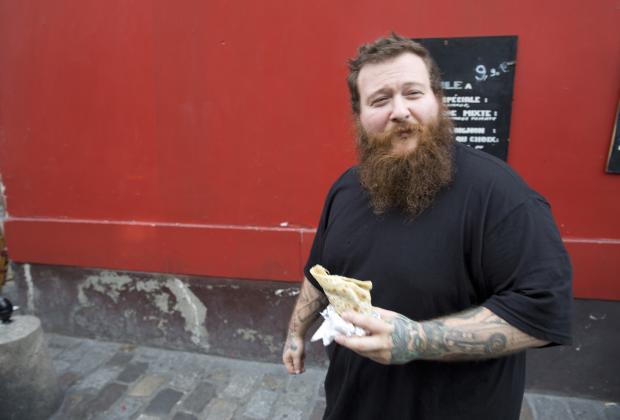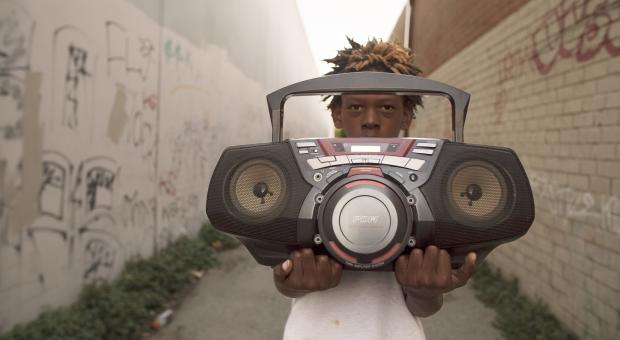Viceland hosts open up on marijuana, LGBTQ issues, food and music
Leave it to Vice Media to add four-letter words and marijuana puns to their show titles. The company, in partnership with A&E, rolled out a series of original shows for the launch of their new cable network Viceland in February. The 24-hour cable channel, which is led by writer/director Spike Jonze, is hoping to stand out in the cable TV landscape with its nontraditional programming.
CBS News talked with a few of the series hosts to get the inside scoop on what to expect from the shows.
Ian Daniel, co-host of "Gaycation"
On what it was like to go on this journey with best friend Ellen Page:
Ellen is just the best travel partner. I admire Ellen's intelligence, her curiosity, and her activism. On one level, you are traveling with your best friend and it's fun and we're doing all the things you might expect on a vacation, but we're really there to talk to the people who are experiencing LGBTQ issues first-hand. So it's a reality check, a lot of times it is a hard situation for people in certain countries and it definitely has been waking us up.
On the balance of celebrating LGBTQ communities and highlighting the struggle:
The show is a celebration of the progress that some countries are making. We are there to celebrate and be inspired by what they are doing but you also have the harsh reality of the daily existence of some people. Ellen is just like in the moment, in a way that sometimes I'm maybe not.
On experiencing powerful scenes firsthand:
If Ellen is having a very emotional reaction, I kind of take on a protector role. And she does that for me as well. When she's crying, I kind of buck up a little bit. I think Ellen is definitely emotionally moved more than I am, on some levels, and I think she is outwardly expressing those more for me. I leave those scenarios and it takes me time to understand what they are really going through. I think I just look at it like I am here out of my own curiosity and I feel honored to be in a space where people are willing to intimately share their life experiences.
Krishna Andavolu, host of "Weediquette"
On how a show about weed came about:
It's about weed, which you think might be a silly stoner show, but in the past few years since I've been following this topic I've seen the real characters, the people whose lives are pretty profoundly impacted by the laws surrounding legalization, by the new medicine that is being developed, and by the big business that is emerging from this transition as well. So a lot of the stories were really rich.
On how his perception of marijuana changed in filming this show:
The best way to describe it is: Weed used to be the thing you would do away from your family, but now what I'm finding is that for the people that I met, weed is an organizing principle for their family. That transition is very profound. It used to not be associated with the family, and in some instances it can keep some families together. It was a deep experience to see that, and one that I hope will continue.
Action Bronson, host of "F**k that's Delicious"
On traveling and sharing food experiences with friends:
We made a big splash on the Internet so the natural progression would be to take it to a wider scale. I've been so inspired through my career and somehow making it in the music industry and being credible enough to do both music and my first passion, which is food.
On picky eating:
I'm a little bit more critical because I know what's supposed to be what. But I enjoy everything for the most part. I'm not a picky person; I've been through every realm of life so I'm not a snob about it. I try not to look at the negative.
On a potential future cookbook:
I just got a book deal actually. So now I'll be an author, a published rapper and a f**king television guy. I feel like I'm trailblazing a whole new genre of chef. Rappers come up to me all the time and say they are inspired to go on food expeditions with me now, it's really been crazy.
Zach Goldbaum, host of "Noisey"
On how the show came about:
We tried to go to places that were telling stories that were currently happening and really present. I think the point of the journey was to just sort of explore things that are happening right now. What's so exciting about this is being able to hear an artist and go, "Wow they are the best right now," and then being able to go and meet them, like what we did with Kendrick Lamar.
On common threads between different music scenes:
Whether it's in the Sao Paolo favellas, or in Jamaica's Garrison communities or in the South Side of Chicago, I think that music is really a way to break out of a difficult situation. It's a ray of light for people in difficult situations. Kendrick Lamar represents the same thing. And people will do a lot to get out of a difficult situation. And I think music really represents that.
On why people should tune into the show:
I think if you're a music superfan like we are, it will act as a companion piece. You should be able to listen to "Pimp a Butterfly" and watch this and hopefully it will enrich what you're experiencing in the album. I think for people who are not into the music necessarily, it will open your eyes to different cultures.


